1. Decluttering as a Substitute for Mental Clarity
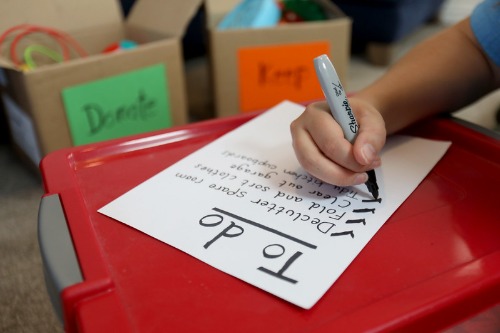
Ever clean your whole apartment instead of dealing with an emotional issue? You’re not the only one. Decluttering is satisfying, and studies show it can reduce stress—but it’s also a way to feel accomplished when you’re mentally foggy, according to Barbara Brody of WebMD. For many, tidying up is a form of avoidance that feels productive.
The popularity of Marie Kondo and the minimalist movement reflects this desire for clarity. But simplifying your space doesn’t always simplify your mind. Sometimes, organizing is less about order and more about distraction. It’s easier to throw out old sweaters than to process feelings.
2. Using Productivity Apps to Feel in Control
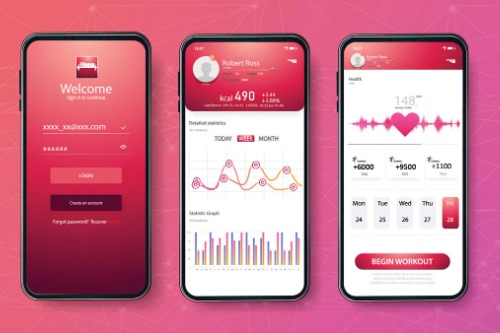
From Notion to Trello to an ever-growing to-do list in your Notes app, Americans love productivity tools. On the surface, these apps help organize our lives—but often, they’re just ways to feel like we’re managing chaos, Leah Messinger of The Guardian explains. When everything feels overwhelming, checking a box gives a false sense of accomplishment, even if it’s something like “drink water.” It’s less about efficiency and more about soothing anxiety through structure.
These systems can become more complicated than the tasks they’re supposed to track. People sometimes spend more time optimizing their to-do lists than actually doing the things on them. It feels productive, but it’s a clever disguise for stress. Essentially, it’s organizing as a way to emotionally self-regulate.
3. Turning Everything Into a Side Hustle

From selling handmade candles on Etsy to monetizing a pet’s Instagram, Americans are encouraged to turn hobbies into income, Louisa Clarence-Smith of The Times explains. On one hand, it’s creative entrepreneurship—but often, it stems from financial pressure and a fear of “wasting” time. When relaxing starts to feel like a missed opportunity to earn, it’s a red flag. This isn’t always about passion—it’s often economic survival wrapped in glitter.
According to Pew Research, nearly 40% of gig workers in the U.S. rely on side hustles as a main source of income. That’s not just ambition—it’s necessity. The “hack” here is doing more with less, not because it’s fun, but because it’s required. Turning joy into productivity is a way to feel in control of unstable finances.
4. Obsessive Self-Tracking (Sleep, Steps, Calories)
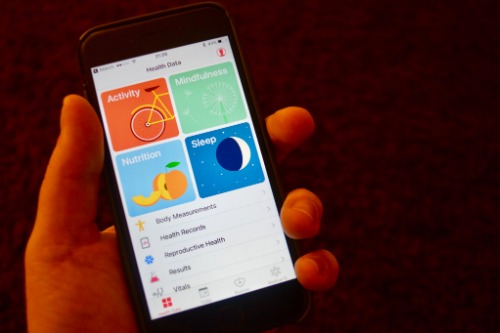
Americans love their fitness watches and health tracking apps—Fitbits, Apple Watches, MyFitnessPal, and the like. These tools are marketed as wellness aids, but often they feed into anxiety and perfectionism, according to Leila Fadel of NPR. It feels like control: if I can track it, I can fix it. But too often, it spirals into hypervigilance and guilt when numbers don’t match expectations.
Studies have shown that excessive tracking can actually undermine intuitive eating and rest. People start to rely on external data instead of listening to their bodies. In a culture obsessed with optimization, it’s easy to confuse self-care with self-surveillance. It’s not about health anymore—it’s about performance.
5. “Therapy Talk” Without Therapy

Terms like “boundaries,” “trauma response,” and “gaslighting” have gone mainstream in everyday American conversation. While mental health awareness is a good thing, casually tossing around clinical terms can be a way of masking unresolved issues. People sometimes use this language to intellectualize emotions instead of dealing with them. It’s easier to sound emotionally literate than to actually be vulnerable.
Social media especially encourages this performative healing. Instead of saying “I’m overwhelmed,” someone might post, “I’m protecting my peace.” It sounds empowered, but can also serve as a barrier to connection or accountability. In this case, the “life hack” is emotional distance disguised as growth.
6. Curating “Aesthetic” Spaces for Inner Calm
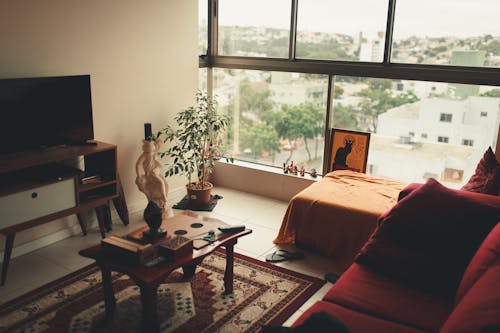
The rise of minimalist decor, clean girl beauty, and houseplants galore has a soothing vibe—but it’s also an externalization of internal chaos. Americans increasingly design their homes and digital lives to look peaceful, hoping it will make them feel that way. The problem is that calming visuals don’t necessarily fix underlying stress. A beige color palette won’t cancel your burnout.
This trend accelerated during the pandemic, when people were stuck indoors and needed a sense of control. But in many cases, the curated calm becomes a mask. It’s not that scented candles and neutral tones are bad—it’s that they can become emotional placeholders. Peace becomes a performance.
7. Using Coffee as a Personality

There’s nothing wrong with enjoying coffee—but when people joke “don’t talk to me until I’ve had my caffeine,” it often masks chronic exhaustion. Coffee becomes a ritual, an identity, even a meme, but underneath it is a widespread sleep deficit. Americans are among the most sleep-deprived populations in the world. Rather than address that, we glamorize needing a stimulant to function.
Coffee culture also overlaps with hustle culture. The more you need it, the harder you must be working—right? But masking fatigue with espresso isn’t resilience; it’s avoidance. It’s not a hack, it’s a bandage.
8. Scheduling Every Minute of the Day
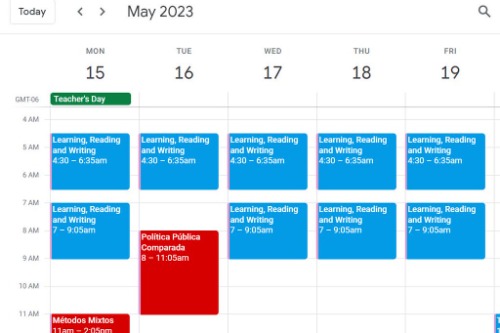
The rise of “time-blocking” and hyper-scheduling reflects more than just a desire for efficiency. Many Americans schedule every hour of their day—from work to workouts to 15 minutes of “me time”—as a way to feel in control of their lives. But for a lot of people, this kind of structuring is an attempt to avoid the discomfort of unstructured time. If every minute is planned, there’s no space to sit with feelings of uncertainty or anxiety.
Ironically, this over-scheduling often leads to more stress. When plans fall through or time blocks run over, it can feel like a personal failure. Free time, once a luxury, now feels threatening. Structure becomes a shield, not just a tool.
9. Watching “Comfort Shows” on Repeat
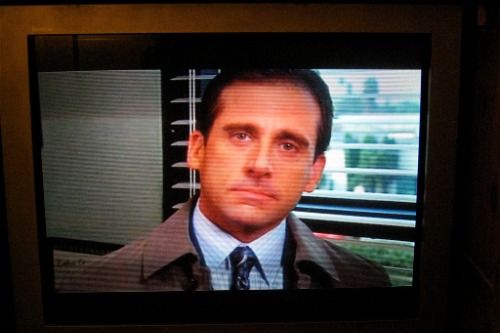
Binging The Office or Friends for the 12th time? You’re definitely not alone. Rewatching familiar shows provides psychological safety, especially when life feels unpredictable. It’s soothing to revisit characters and plots you already know, because there’s no emotional risk.
Research confirms that people turn to nostalgic media during times of stress. But while it can be helpful, it’s also a way of checking out. Instead of facing what’s causing anxiety, people retreat into predictability. That’s not a hack—it’s emotional numbing in sitcom form.
10. Meal Prepping to Feel “On Top of Things”
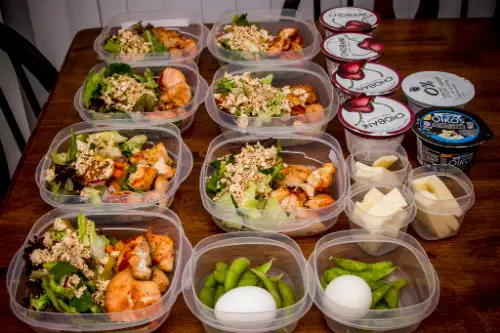
Meal prep is often framed as a smart, healthy, time-saving strategy—and it can be. But for many Americans, it’s less about nutrition and more about exerting control when everything else feels out of hand. When your week feels overwhelming, at least your lunches are ready. That sense of order can feel like a lifeline.
However, it can also become rigid and obsessive. People may feel guilty for eating off-plan or skipping prep, turning a helpful routine into a source of pressure. In this context, food becomes less about nourishment and more about emotional reassurance. It’s more coping than cuisine.
11. Romanticizing “Hustle Culture”

The American grind mindset—“rise and grind,” “sleep when you’re dead”—is often touted as ambition. But it’s frequently a coping mechanism for people trying to justify overworking themselves in an economy that makes rest feel unaffordable. Many people equate constant motion with value, fearing that slowing down means falling behind. It’s easier to idolize hustle than admit you’re burning out.
Research shows that overwork doesn’t necessarily equate to better performance. In fact, the World Health Organization has classified long working hours as a serious health hazard. But hustle culture masks exhaustion as drive, and that’s how it becomes addictive. It tells us stress is noble, not a warning sign.
12. Turning Wellness into a Competitive Sport
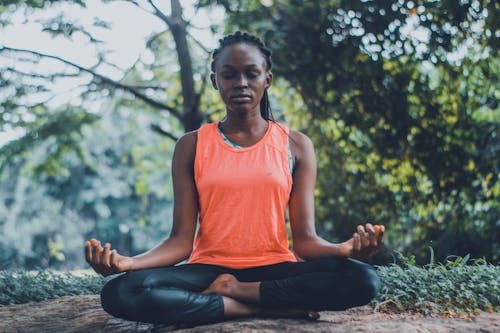
Cold plunges, green powders, meditation apps, and morning routines are all branded as self-care. But in America, wellness is increasingly commodified and competitive. Who’s the most disciplined? Who’s “winning” at mindfulness? That mindset turns healing into another performance metric.
The pressure to optimize every part of your life—down to your sleep cycles and breathwork—creates new forms of anxiety. Instead of making people feel better, wellness can become another item on the to-do list. It stops being about feeling good and starts being about doing it “right.” That’s not self-care—it’s self-pressure.
13. Constantly Consuming Self-Help Content
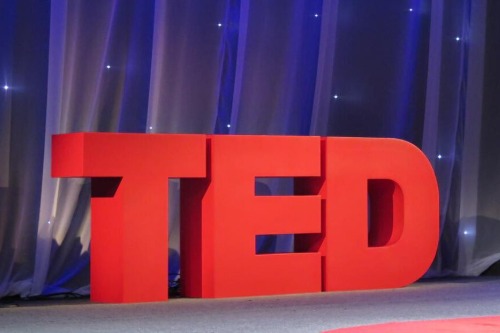
Podcasts, books, TED Talks—there’s always a new tool to “unlock your potential.” But self-help can become an endless loop, where people seek improvement without actually making changes. Learning about growth becomes a stand-in for doing the hard work of growing. It feels good in the moment, but often, it’s intellectual procrastination.
There’s nothing wrong with insight, but insight without action doesn’t lead to real change. Americans often consume advice like a product, not a process. The motivation high wears off, and they’re left looking for the next fix. It’s not transformation—it’s a distraction disguised as progress.


